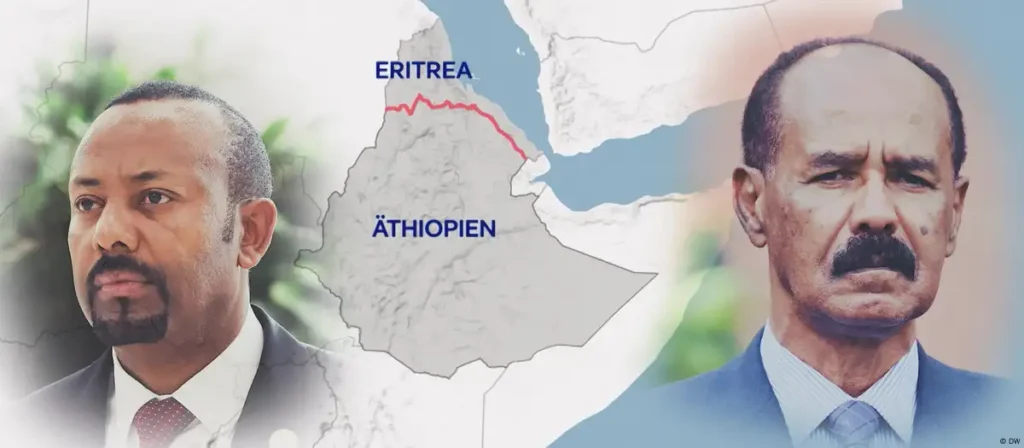Recent weeks have seen a complex interplay of diplomatic maneuvers and subtle shifts in alliances across East Africa, particularly involving Ethiopia, Eritrea, Sudan, and key regional and international players like the UAE and Egypt. While Ethiopia’s Foreign Minister has publicly downplayed a “word war” with Eritrea, regional analysts suggest a deeper strategic realignment is underway.
Ethiopia-Eritrea Relations: Denials Amidst Underlying Tensions
Despite recent public perceptions of a “word war” between Ethiopia and Eritrea, particularly concerning port access, Ethiopian Foreign Minister Gedion Timotheos explicitly denied this in a parliamentary address on Thursday. He stated, “The government of Ethiopia has not entered into a word war with the Eritrean government.” However, he did acknowledge the existence of “uncomfortable and unpleasant” issues emanating from Eritrea. Ethiopia, he indicated, is exercising patience to avoid damaging the crucial “people-to-people relations” between the two nations.
Analyst’s Perspective: Strategic Maneuvering Beyond Direct Conflict
Regional analyst Abdurahman Seyid offers a different perspective, suggesting that while neither Ethiopia nor Eritrea may desire direct military conflict given their respective internal situations, both are actively pursuing their interests through proxies in neighboring countries, particularly Sudan and Somalia.
Ethiopia’s Outreach to Sudan:
Recent reports from Sudanese newspapers confirm that a high-level Ethiopian delegation, led by National Intelligence and Security Service (NISS) Director Redwan Hussein, visited Port Sudan on Sunday, May 24, 2017 E.C. (Ethiopian Calendar). The delegation was reportedly welcomed by the head of Sudan’s General Intelligence Service, Ahmed Ibrahim Mufaddal. The visit’s stated purpose was to discuss regional security and express Ethiopia’s support for Sudan. This visit notably occurred amidst heightened tensions between the Sudanese Armed Forces (SAF) and the Rapid Support Forces (RSF).
Eritrea’s Engagement with Sudan’s SAF Leader:
Prior to Ethiopia’s visit, General Abdel Fattah al-Burhan, Chairman of Sudan’s Sovereign Council and SAF leader, was officially welcomed by Eritrean President Isaias Afwerki in Asmara, where regional issues were discussed. The timing of these separate engagements by Ethiopia and Eritrea with key Sudanese factions underscores their distinct strategic interests in the ongoing Sudanese conflict.
Shifting Alliances and Regional Drivers:
Mr. Abdurahman Seyid points to two primary factors driving the current regional alignment shifts:
Strained UAE-Sudan Relations: The relationship between the United Arab Emirates, a close ally of the Ethiopian government, and Sudan has become significantly strained. Redwan Hussein’s visit to Sudan reportedly included a message from Ethiopian Prime Minister Abiy Ahmed to General Abdel Fattah al-Burhan, hinting at Ethiopia’s stance in this evolving dynamic.
Eritrean Naval Presence in Port Sudan: Approximately three weeks ago, during a drone attack by the Rapid Support Forces (RSF) on Port Sudan, the Eritrean Navy was reportedly present in Port Sudan. The analyst stated that the Eritrean Navy thwarted drone attacks alongside the Sudanese army and issued statements via Sudanese media expressing support for Sudan and ensuring maritime security in the region.
Egypt’s Role in the Evolving Landscape:
Egypt, a country frequently associated with regional security concerns, is also actively engaged. Egyptian President General Abdel Fattah al-Sisi visited the United Arab Emirates this week. The UAE has been criticized for allegedly supporting the RSF in Sudan, a claim it denies, and is also a close friend of the Ethiopian government. President Sisi’s discussions in Abu Dhabi with UAE President Sheikh Mohamed bin Zayed Al Nahyan reportedly focused on current regional issues.
The current situation in East Africa, marked by intricate diplomatic overtures, shifting alliances, and underlying tensions, continues to draw significant attention. The direction of these developments remains a critical watch for regional and international observers.



